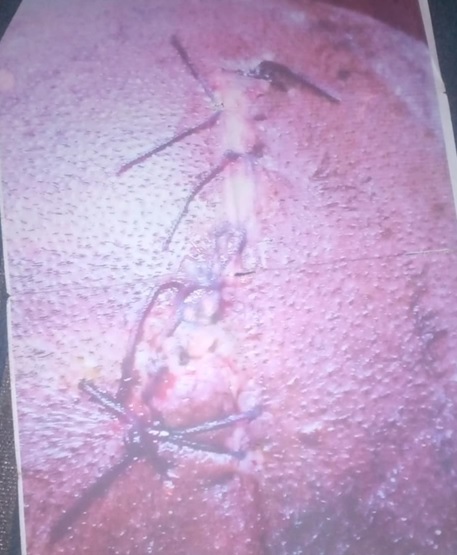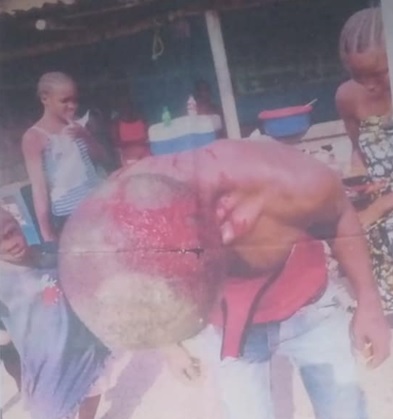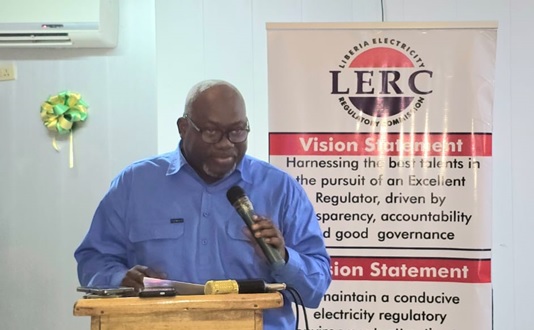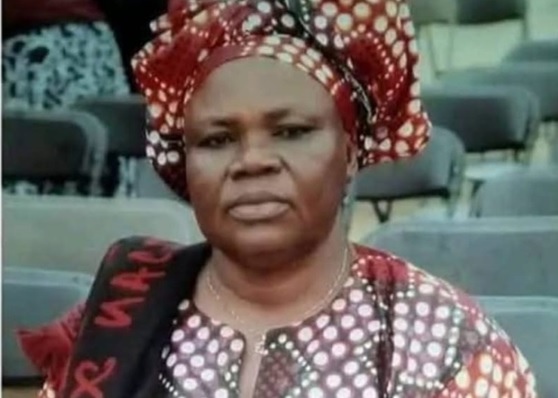Liberia, a country with a history of conflict, seems to be facing new waves of violence and lawlessness. Recent events show a disturbing trend where peaceful citizens, instead of being protected by the police and government, are attacked and threatened.
The James B. Sando family, who have endured brutal attacks and tragedies, represents the struggles faced by many Liberians today. Their story is a warning about how unsafe life has become for ordinary people.
On June 7, 2019, some citizens gathered at New Georgia Junction on Somalia Drive as part of the Save the State protest to demand better leadership and accountability from the government.

Among those caught in the chaos was the then, Bishop Gabriel Gepleh McCauley, who was heading home after picking up his wife, Regina Kona Sando McCauley, from work. Regina was working with the Liberia Anti-Corruption Commission (LACC), an institution known for investigating and prosecuting corruption cases.
James described the horrific experience of how his sister and husband met with violence that left her with a broken finger, ribs and wounds all over her body. That same month, there was another attack on their home. In July things got worse forcing them to run for their lives.”
Despite their desperate need for help, He said, Gabriel revealed the indifference they faced from law enforcement on how they called the police, but they told them that there were no cars at the basement that night.”
James B. Sando recounted his ordeal:
“After our mother died of a heart attack because of people still coming around the house, I moved into the McCauley family home with my family, but danger followed us there. I was attacked with a machete (cutlass), and the wounds were so deep that I needed 17 stitches to close them. The attack wasn’t random; it was aimed at forcing me to reveal the whereabouts of my sister, Regina K.S. McCauley, and her family. I did not know their location. So, my children and I were brutally beaten.”
James believed they were targeted because of his sister Regina. He described how corrupt individuals exploit situations like protests to retaliate against investigators:
These attacks show how people who are working to fight corruption within government agencies are targeted and silenced. This pattern recalls the tragic case of investigators from the Liberia Revenue Authority (LRA) who were found dead in their vehicle under suspicious circumstances.
The violence reached a devastating peak on July 1, 2024, when James Sando’s son, James Jr., was shot and killed by a police officer — the very figure meant to protect him. Speaking of his loss, James expressed his anguish:
“My son was innocent. He was killed by someone who should have been protecting him. Our security system is broken. Families like mine no longer feel safe, and there is no trust in those who are supposed to protect us.”
This tragedy shows how Liberia’s police force has become part of the problem rather than a solution. People now live in fear of the very authorities meant to ensure their safety.
Sebo Daniel, a journalist covering the Sando family’s story, explains that their experience is not unique:
“The suffering of the Sando family reflects what many Liberians go through every day.
Violence is rampant, and no one is held accountable. When the police kill a young man like James Jr., it exposes how broken our security system truly is. Without real reforms and justice for these crimes, Liberia risks descending further into lawlessness.”
Journalist Sebo Daniels warns that unless the government takes decisive action to end the violence, the situation will worsen:
“From the machete attack on James to the tragic death of his son, these events reveal a larger problem of unchecked violence and impunity. Ordinary people suffer while those in power do nothing.”
Smart News has been following and reporting these stories to raise awareness. Liberia’s government must act urgently to hold perpetrators accountable and reform the police and security systems to prevent further brutality.
If decisive steps are not taken, Liberia faces a grim future of escalating violence and instability. The voices of victims, like the Sando family, demand justice. Only then can peace and safety be restored.
How many more lives must be lost before real change happens?







